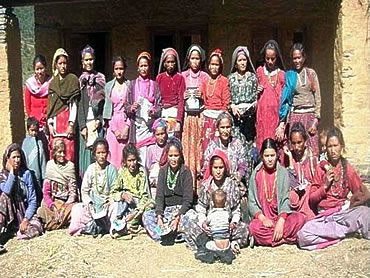| |
|
| Giving a voice to women through community radio In Nepal, women are often considered as second class citizens. The Illiteracy rate is particularly high among females as they generally do not have access to information. For example, very few women own, or have control over the radio sets in their home, thereby limiting their freedom to decide which station or programme to listen to. Similarly, the number of women employed as radio presenters is low. |
News |
|
In Nepal, women are often considered as second class citizens. The Illiteracy rate is particularly high among females as they generally do not have access to information. For example, very few women own, or have control over the radio sets in their home, thereby limiting their freedom to decide which station or programme to listen to. Similarly, the number of women employed as radio presenters is low.
To empower women and to provide them with access to information, the NGO Hamro Aawaj, Hamro Sarokar (Our Voice, Our Concern) is going to establish Radio Nari Aawaj (Radio Women’s Voice), a community radio station managed and operated by women living in the remote Jumla district. The output will be broadcast in the Nepali language.
The target audience of the new UNESCO Kathmandu Office-backed community radio station is rural women residents in 30 villages in Jumla district, with a total population of 77,662. The output will also be broadcast to women living in four villages in the neighboring districts of Kalikot (West) and Dolpa (East). The station will be operated and managed by women from Jumla district. The vice-chairperson of Hamro Aawaj, Hamro Sarokar Hari Devi Rokaya said: “Working for this project will certainly give us the opportunity to bring awareness and positive feelings in the lives of women in Jumla, whose voices are still not heard.” The project is funded by the International Programme for the Development of Communication (IPDC). The meeting of IPDC bureau took place at UNESCO Headquarters in Paris 22-24 March. More than 2.3 million USD$ has been allocated to media development projects to be implemented in 65 countries. 
Women from Jumla district of Nepal
© UNESCO Related themes/countries
· Nepal · Community Media · International Programme for the Development of Communication (IPDC) |
Contact information
Source
Field office
Related Links
More resources
|
|
portal1.org we are portal 1 Community of Practice Software Solutions - Powered by Tomoye Simplify Version 3:01b |
UNESCO-CI
Have feedback? Email the Chief Editor Portal Statistics: 25065 knowledge objects - 6862 topics |
||